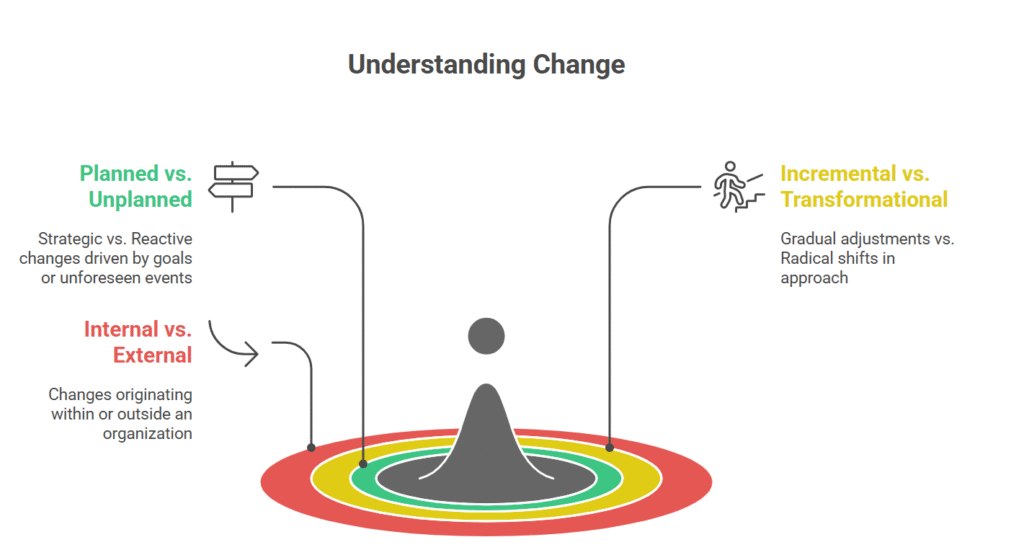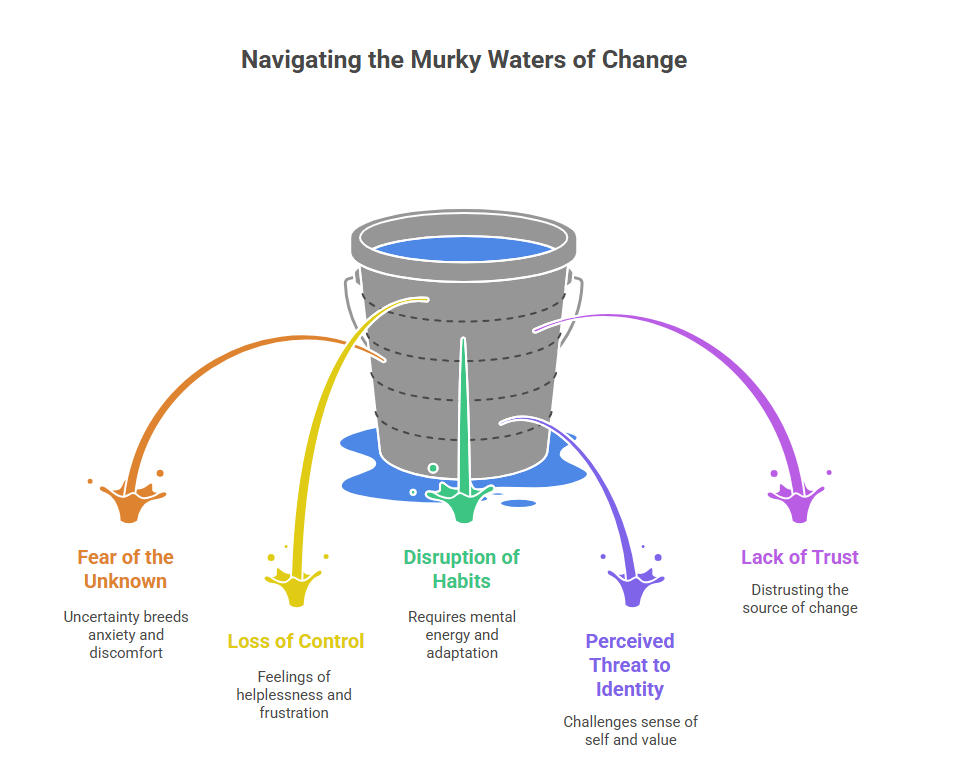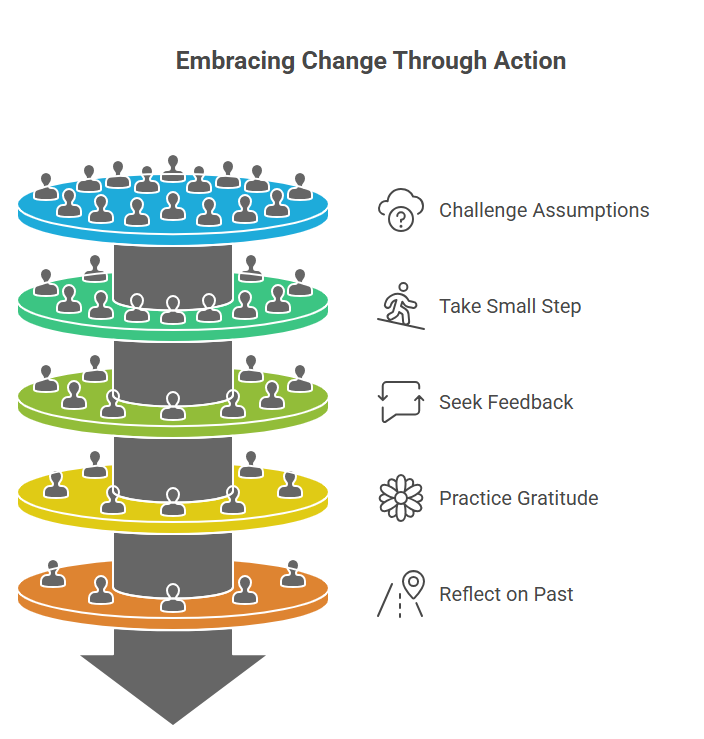This blog post explores the overarching theme of embracing change, a constant in both our personal and professional lives. We delve into the nature of change, the common challenges it presents, and practical strategies for not only surviving but thriving amidst uncertainty. By understanding the psychological underpinnings of our resistance to change and adopting proactive approaches, we can cultivate resilience and unlock new opportunities for growth.
The Inevitable Tide: Understanding the Nature of Change
Change is the only constant. This age-old adage rings true in every facet of our existence. From technological advancements reshaping industries to evolving social norms influencing our interactions, change is an inescapable force. Understanding its nature is the first step towards navigating it effectively.
Change can be categorized in various ways:
- Planned vs. Unplanned: Planned changes are deliberate and strategic, often driven by organizational goals or personal aspirations. Unplanned changes, on the other hand, are unexpected and reactive, stemming from external events or unforeseen circumstances.
- Incremental vs. Transformational: Incremental changes are small, gradual adjustments that build upon existing processes or systems. Transformational changes are radical and disruptive, requiring a fundamental shift in mindset and approach.
- Internal vs. External: Internal changes originate within an organization or individual, such as a new leadership structure or a personal decision to adopt a healthier lifestyle. External changes are driven by factors outside our control, such as market fluctuations or global events.
Recognizing the type of change we are facing allows us to tailor our response and allocate resources accordingly.

The Resistance Within: Why We Struggle with Change
Despite its inevitability, change often evokes resistance. This resistance stems from a variety of psychological factors:
- Fear of the Unknown: Uncertainty breeds anxiety. We tend to prefer the familiar, even if it’s not ideal, over the unknown, which can feel threatening.
- Loss of Control: Change can make us feel like we’re losing control over our environment and our lives. This can trigger feelings of helplessness and frustration.
- Disruption of Habits: Our brains are wired to create habits, which provide efficiency and predictability. Change disrupts these habits, requiring us to expend more mental energy and adapt to new routines.
- Perceived Threat to Identity: Change can challenge our sense of self and our place in the world. We may fear that we will no longer be valued or that our skills will become obsolete.
- Lack of Trust: If we don’t trust the source of the change or understand the rationale behind it, we are more likely to resist it.
Understanding these underlying factors is crucial for addressing resistance effectively.

Building a Bridge: Strategies for Embracing Change
While resistance to change is natural, it doesn’t have to be debilitating. By adopting proactive strategies, we can cultivate resilience and embrace change as an opportunity for growth:
- Cultivate a Growth Mindset: Embrace the belief that your abilities and intelligence can be developed through dedication and hard work. This mindset allows you to view challenges as opportunities for learning and growth, rather than as threats to your self-worth.
- Develop Adaptability: Practice being flexible and open to new ideas. Seek out new experiences, learn new skills, and challenge your assumptions. The more adaptable you are, the better equipped you will be to navigate change.
- Focus on What You Can Control: While you can’t control external events, you can control your response to them. Focus on what you can influence, such as your attitude, your actions, and your relationships.
- Seek Information and Understanding: Knowledge is power. The more you understand the reasons behind a change, the more likely you are to accept it. Ask questions, seek clarification, and stay informed.
- Build a Support Network: Surround yourself with people who are supportive and encouraging. Share your concerns, seek advice, and lean on your network for emotional support.
- Practice Self-Care: Change can be stressful. Make sure to prioritize self-care activities that help you manage stress and maintain your well-being, such as exercise, meditation, or spending time in nature.
- Celebrate Small Wins: Acknowledge and celebrate your progress along the way. This will help you stay motivated and build momentum.
- Reframe Your Perspective: Look for the positive aspects of change. What opportunities does it create? What new skills can you learn? How can it benefit you in the long run?
- Embrace Experimentation: Don’t be afraid to try new things and experiment with different approaches. Not everything will work, but you’ll learn valuable lessons along the way.
- Communicate Openly and Honestly: If you’re leading a change initiative, communicate openly and honestly with your team. Address their concerns, answer their questions, and provide regular updates.
Action Points: Putting Theory into Practice
Here are some concrete action points you can take to start embracing change today:
- Identify a Change You’re Currently Resisting: What is it about this change that you find challenging? What are your fears and concerns?
- Challenge Your Assumptions: Are your fears based on facts or assumptions? What evidence do you have to support your beliefs?
- Identify One Small Step You Can Take: What is one small, manageable step you can take to move towards embracing this change?
- Seek Feedback: Talk to someone you trust about your concerns and ask for their perspective.
- Practice Gratitude: Focus on the things you are grateful for in your life. This can help you maintain a positive attitude and build resilience.
- Reflect on Past Changes: Think about times in the past when you successfully navigated change. What strategies did you use? What lessons did you learn?

Conclusion: Embracing the Journey
Change is an integral part of life. By understanding its nature, addressing our resistance, and adopting proactive strategies, we can not only survive but thrive amidst uncertainty. Embrace the journey, cultivate resilience, and unlock new opportunities for growth. The future belongs to those who are willing to adapt and embrace change.
A Call to Action
Partner with us now. Mentor a rising innovator, Support youth-led ideas that change lives and Together, we’re not just talking about change-we’re building it.
Send Us An Email: info@valuegate.com.
Follow Us On LinkedIn Today.
Follow Us On Facebook Today.
Partner With Us to support youth-led initiatives across Africa.




